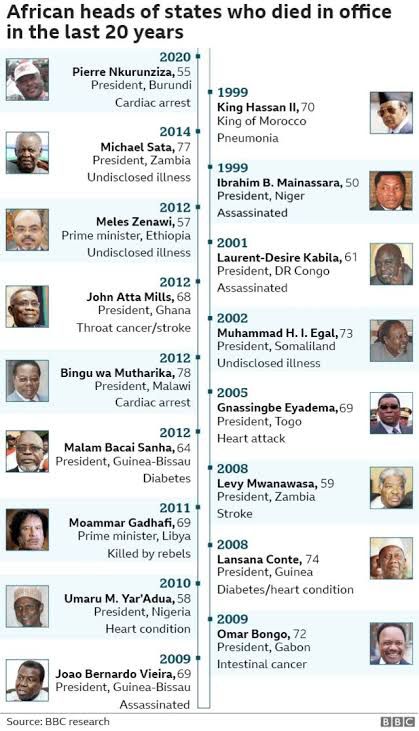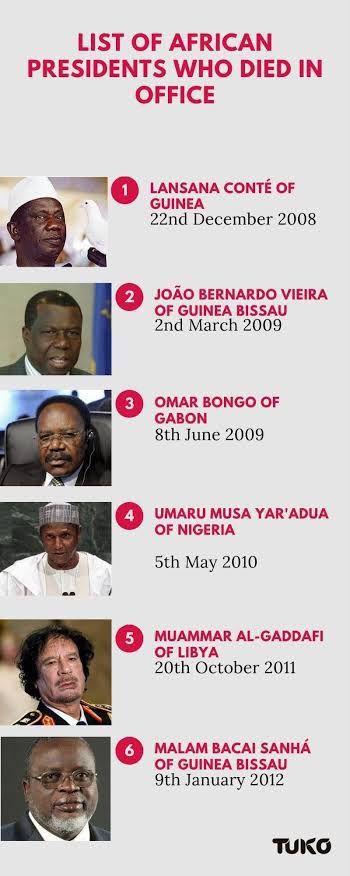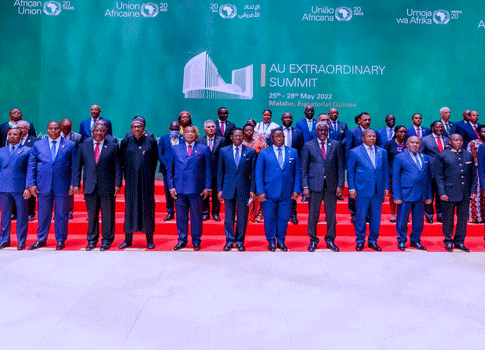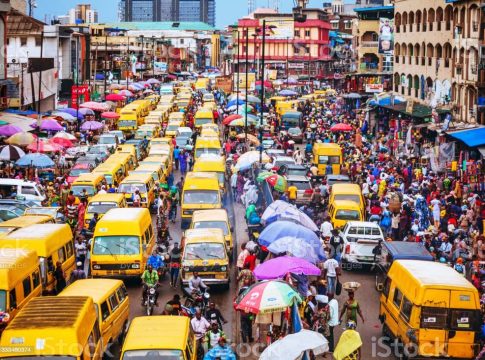By Bernard Taiwo
Democratic governance has been a major political challenge in Africa since the dawn of independence in the early 1960s.
Though African democracy has shown some improvements, with elections becoming more frequent and more regular in some parts of the continent, few African states are still characterized by corruption and autocracy. In such states, the incumbent cows the opposition and exploits the power of the state to skew the electoral contest in his favor.
In some other climes especially in Eastern and Central Africa, constitutional coups are the tools incumbents employ to sidestep term limits by amending the provisions of a national constitution to achieve tenure elongation. A Guardian Editorial (2005) corroborates this when it noted that “with a few notable exceptions, there is and has been reluctance among African leaders to relinquish power. Whether they ascended through a military coup or civilian election, no sooner they got there than they begin plotting and scheming to stay in power indefinitely.”
Currently, many African heads of state are sit-tighting; a lot would want to and some had tried to, but could not succeed.
READ MORE: Israel says the first direct flights from Nigeria will start on April 20
Those who had tried and failed and those who would want to but cannot, are only prevented from accomplishing their unbridled folly due to the political consciousness of the citizenry of their country. For instance, Zambia’s Frederick Chiluba in 2002, Malawi’s Bakili Muluzi in 2004, Nigeria’s Olusegun Obasanjo in 2007 and Zambia’s Yayah Jammeh in 2017 were only prevented from sit-tighting at a great cost to their various countries after they had tried vigorously to extend their rules. Blaise Compaoré of Burkina Faso was only prevented from hanging onto power in 2014 owing to mass protests which forced him to flee. Robert Mugabe in Zimbabwe never intended to quit power until he was forced out of office through a military coup in 2017 after 37 years in office.
Nonetheless, much as many had tried and failed, some are already accomplished sit-tighters; from Teodoro Obiang Nguema Mbasogo of Equitorial Guinea to Yoweri Museveni of Uganda and Paul Biya of Cameroon. These are men still ruling their respective country against the tenets of democracy which they claim to practice and uphold.

Indeed, the list of Africa’s sit-tight presidents is long. However, there are some African countries like Libya, Egypt, Tunisia and Burkina Faso whose presidents, sit-tighted but who were forced to step down against their will. Sit-tightism in Africa did not start today as Kunuj (2016) noted that it has a long and troubling history in Africa. It is characterized by a willful reluctance on the part of political leaders to relinquish power. It is facilitated by dictatorship and oiled by brutal repression of dissent and fundamental freedoms, (Inegbedion, 2010).
Such was the case in Libya under Muhammar Gaddaffi from 1968 to 2011. It was also the case under Mobutu Seseseko of the DRC from 1965 to 1997; Mathieu Kerekou of Benin Republic from 1972 to 2006; Felix Houphouet Boigny of Cote d‟ivoire from 1960 to 1993, Gnassingbe Eyadema of Togo from 1967 to 2005 and Robert Mugabe of Zimbabwe from 1980 to 2017.
In all the cases, power has been retained against the will of the citizenry, (Fombad & Inegbedion, 2010) and it is antithetical to the principle and practice of democracy.
He says further that this phenomenon which can be described as the foremost weakness of leaders of Africa and the Third World has shown them to be vain, greedy, immature and inconsiderate. The situation is such that while 34 African countries have two-term limit provisions in their constitutions, only 20 percent of these term limits have been complied with, (Ried, 2014).
Below is a list of some African presidents and the number of years they were or have been in power, indicating sit-tightism.
1. President Teodoro Obiang of Equatorial Guinea (42 years)
President Teodoro Obiang of Equatorial Guinea merits the first position on this list of sit-tight leaders. He first became president in August 1979. He has ruled the country for a record 42 years. He came to power through a bloody military coup in which he overthrew his uncle Francisco Macías Nguema whom he committed to a firing squad on September 29, 1979.
2. President Paul Biya of Cameroon (40 years)
Next on this list is Paul Biya of Cameroon. He came to power in 1982 and has remained the leader of Cameroon 39-years after. Biya is the 2nd longest-serving president in Africa. At the age of 88, Paul Biya is the oldest head of state in Africa.
3. President Denis Sassou-Nguesso of Congo Brazzaville (37 years)
Denis Sassou first ruled the of Congo Brazzaville as President for 12 years from 1979 to 1992 when he was defeated in the presidential election by Pascal Lissouba. President Denis Sassou-Nguesso organized forces that rebelled against Lissouba in 1997, thereby taking power again. He has held on to the seat since then. Born in 1943, he has ruled Congo Brazzaville for a total of 37 years
4. President Yoweri Museveni of Uganda (35 years)
Yoweri Museveni captured power as a military leader in 1986 after the rebellious forces loyal to him ousted Milton Obote and Idi Amin. Museveni was first seen in a good light by Western powers who hailed him as part of the new generation of African leaders. Born in 1944, Museveni has amended the constitution to abolish presidential term-limit and age-limit. He has ruled Uganda for 35 years.
5. King Mswati of Eswatini (36 years)
Also on this list is King Mswati of Eswatini. He is the head of the Eswatini Royal House. The 58-year-old was crowned king on April 25, 1986, at the age of 18. As a king, Mswati is not going to vacate his throne anytime soon. He has ruled his kingdom for 36 years. The king has 16 wives and 36 children
6. President Idris Derby of Chad (30 years)
Another African leader who stayed long in power was President Idris Derby of Chad. He ruled Chad from 1990 to 2021 when he was killed by rebellious forces opposed to his rule. As a military man, he was commanding his troops on the war front when he was killed in May 2021. He was however succeeded by his son Mahamat Deby.
7. President Isaias Afwerky of Eritrea (31 years)
75-year-old Isaias Afwerky has ruled Eritrea for 30 years. He first came to power in 1991 after he led the Eritrean People’s Liberation Front (EPLF) to victory. His victory ended the 30-year-old war for independence from Ethiopia. He has however clung to power since then. His government has been accused of totalitarianism and multiple cases of human rights abuse.
8. President Ismail Omar of Djibouti (23 years)
Ismail Omar was first elected as Djibouti president in 1999. He was the preferred successor of his uncle Hassan Gouled Aptidon who also ruled Djibouti as president from 1977 to 1999. Ismail Omar subsequently got re-elected into office in 2005, 2011, 2016 and in 2021 in elections that were heavily boycotted by the opposition. He has ruled Djibouti for 23 years
9. King Mohammed VI of Morocco (23 years)
King Mohammed VI has ruled Morocco since July 23, 1999, when he was crowned. He belongs to the Alawi ruling dynasty. He won’t be vacating the throne anytime soon since he is a monarch. Even if he decides to vacate the throne, his son and heir apparent, Moulay Hassan who is the crown prince will succeed him.
10. President Paul Kagame of Rwanda (22 years)
President Paul Kagame carved a global image of a revolutionary and a reformer even though many have started seeing him as a sit-tight leader. Kagame commanded the Rwandan Patriotic Front which was a rebel army that helped end the Rwandan Genocide. He first served as vice president and minister of defence to Pasteur Bizimungu from 1994 to 2000. Kagame was elected president after the resignation of Bizimungu. He was sworn in as president in April 2000 and he has been in power since then.Source: Legit.ng

The list of African leaders who have left the stage through inglorious and unceremonious means is expansive. Cote D’ivore Laurent Gbagbo is a typical study. His quest to hang on to power even when it was acknowledged he lost his re-election bid in a free and fair election led to his disgraceful removal. The ugly precedence in Cote D’ivore was set by Felix Houphouet-Boigny who was President of the country for 33 years. At his death, he was the third longest-serving head-of-state in the world, after Fidel Castro of Cuba and Kim Il Sung of North Korea. He was the first President of Cote d’Ivoire, and died in office as president. The uprising that hit the Arab world and North Africa led to the deposition of sit-tight Presidents Zine al-Abidine Ben Ali of Tunisia who called the shot for over 20 years and Egyptian Hosni Mubarak who held sway for 30 years. Leadership styles in Togo and Gabon are no exception as they have reflected a dynasty that revolves around two families in these countries.
Gnassingbe Eyadema took the sit-tight insanity in Togo to an inglorious height. He was president of Togo for 38 years. He came in through a coup d’état and refused to leave until his death.
However, several longtime leaders have been deposed or otherwise left office in recent years. In 2017, Angolan President Jose Eduardo dos Santos stepped down after thirty-eight years in office, and Zimbabwean President Robert Mugabe was forced from office after thirty-seven years by a military coup. Two years later, Sudan’s Omar al-Bashir was ousted after three decades in power. In 2021, Chad’s Idriss Deby, who also ruled for thirty years, died following a battlefield clash with rebels.In order to prolong staying in office beyond their term limits, sit-tight leaders both in Africa and in other parts of the world utilize different strategies including:Constitutional coup The major strategy through which desperate sit-tight leaders in Africa achieve their goal is by organizing constitutional coup which entails tinkering with their country’s constitution by extending or abolishing term or age limits in the constitution. Simply put, a constitutional coup is an attempt to review or amend the provisions of a national constitution by an incumbent leader with the ulterior motive of capitalizing on such amendments to achieve tenure elongation”, (Adibe, 2016).
READ MORE: South Korea: Chip Plants In China Won’t Be Forced To Shut If Firms Receive US Funding
They engage their cronies in the parliament to pass a law to change either the term or the age limit depending on the one that enables them stay as long as they want in office. Some of them may organize a referendum in which citizens can vote for or against the constitutional amendment. The irony of this scenario is that citizens usually vote in support of the constitutional amendment even when they are aware of the intention of the initiators. This is made easy since the incumbent president who enjoys power of incumbency is able to cajole, manipulate and coax the people to buy into his proposal. Any dissenting voice becomes a dissident and an enemy who must be crushed. Harassing and intimidating the opposition Harassment and intimidation of oppositions is another strategy utilized by some African presidents to achieve their sit-tight intentions. They do this by silencing oppositions in whatever means if they try to educate the people the plan of their president. It may be through arbitrary arrests, detentions, torture, and all kinds of human rights violations.
The Punch Editorial (2018) gave example of Uganda where crude methods of intimidating and hounding the opposition were engaged. Not only were some legislators opposed to the constitutional amendment on age cap suspended for alleged “unruly behavior” in parliament, security men suspected to be soldiers from an elite military unit entered the chamber and violently ejected 25 “enemy” parliamentarians, to ensure an unhindered passage of the amendment. This was despite the fact that the ruling party had a comfortable majority in the parliament”.
Claim to messianic mission in the country In order to justify as well as achieve their aim of overstaying in office, sit-tight presidents give citizens the impression that they are god-sent and as such do not have to leave office as doing so will be inimical to the economic, social, and political development of their country, believing they are the only one who can make a difference in governance. Bribery and corruption Most times, sit-tight leaders in Africa often resort to bribing members of the parliament as they cannot achieve their ambition without the parliament amending the constitution. So they must be bribed, including other powerful stakeholders who are equally important for elongating their tenure. Money, award of contracts, allocation of oil wells, and other mouth-watering emoluments are used to induce strong members of the opposition.
Disadvantages of Sit-tightism
Having sit-tight presidents is in not desirable for any country; it is undemocratic. Such presidents acquire excessive power and wealth so much that no one dare challenge them. They become lords unto themselves and rule with impunity. Sit-tighting goes with repression and sometimes led to protests by citizens at great costs to the country, especially in terms of human and material losses. Over time such presidents become too old, senile, and a liability to their country. No fresh socio-economic and political ideas are brought to the table and gradually lose their usefulness.
Yoweri Museveni of Uganda was once hailed as a progressive but is now encased in corruption, nepotism and intolerance of opposing views. In some of his appointments, he made his wife, Janet Kataaha, a cabinet minister, while promoting his son, Muhoozi Kainerugaba, who is being groomed to take over from him – to the position of a major general in the army,(Abiodum et al., 2016). Late Robert Mugabe, former president of Zimbabwe, who ruled from 1980 -2017 turned the economy of his country, once a veritable food basket, into shambles, “where millions of Zimbabwean dollars cannot buy a loaf of bread”, noted the Punch Editorial (2018). This is was a result of his refusal to quit office when his tenure was over and the resultant lack of ideas as occasioned by senility. Perhaps he would have saved his country all these challenges had he quit when his tenure was due. The war on sit-tight syndrome and tenure elongation in Africa could be sustained if the following strategies are adopted:

Embarking on Good Democratic Reforms: There are indications that the sit-tight style of leadership is fast phasing out in Africa and a clarion call to countries like Mali, Burkina Faso, Ethiopia, Equatorial Guinea, Uganda, etc. to embark on a serious and truthful democratic reforms before they become casualties to latest political upheaval sweeping across the world. Democratization of the world today as being championed by United States of America has to be a deliberate effort to build Institutions that will serve as democratic pillars before democracy can be successfully enthroned in Africa.
Need for Effective Media and Public Opinions: Good and effective media and public opinions exist in every country, but the challenge is they are usually subdued and gagged by the powers-that-be in favor of their tenure elongation plans. That is why most media houses in such countries are often clamped down whenever they spoke out or published anti-government policies.
Independent Judiciary, Non–Partisan Legislative Bodies and Independent Electoral System: The existing arms of government; the judiciary and legislature not only need to be alive to their responsibilities, the executive arm of government must stop interfering in the judicial and legislative processes. The judiciary needs to be independent of the executive to give room for good and fair judicial interpretations while the legislature should cease to be rubber-stamping in the hands of the executive. There is also a need for an electoral system that is independent, able to conduct free and fair elections and not one to be intimidated or cowed by the government in power.
Effective Security Reform in Africa: Recruitment of security personnel should be based on merit while the security apparatus of a state should not be politicized at will or put in the hands of presidents or heads of state. The security agencies; police, army, navy, state security service and others should be clearly separated from the whims and caprices of sit-tight leaders in Africa since about 90 percent of them are partisan and obey obey the whims and caprices of the sit-tight leaders.
READ MORE: New York City braces for Trump indictment after ex-president urges protests
Strict Adherence to Constitutional Provisions and Modern Democracy: There should be a clear objective, resolute and strict adherence to the existing constitutional provisions of government and tenets of modern democracy by African leaders when sworn-in to office. Most of the African leaders bitten by the scourge of “sit-tight syndrome” operate a primitive and crude style of “African democracy”. That is why they suspend or abrogate the constitutional provisions of governance for selfish interests to the detriment of the rule of law and due process.
Conclusion
African leaders have been known to bastardize their Constitutions so as to remain in office for as long as they wish or hand over to their anointed successors, family members, or protégés. International organizations and other country leaders ought to take decisive and forceful actions against such constitutional manipulations. Whatever sanctions, restrictions, embargos, and forced actions is taken out or imposed on countries where the government is forcefully overthrown by uniformed men, the same should be imposed or taken out on countries where the President conceitedly amends, reviews, or adopts a new Constitution, primarily to give himself the room to perpetually remain in office or to contest elections indefinitely. What is unconstitutional should remain unconstitutional should not be selective.
REFERENCES
Abiodun, T F. et al (2018) Sit-Tight Syndrome And Tenure Elongation In African Politics: Implications For Regional Development And Security, IOSR Journal Of Humanities And Social Science (IOSR-JHSS) Volume 23, Issue 4, Ver. 4 (April. 2018) PP 59-65 e-ISSN: 2279-0837, p-ISSN: 2279-0845. www.iosrjournals.org Akintayo B. Esq. (2021) Sit-Tight Syndrome Of African Leaders And The Sealed Lips Of The Claire Klobucista (2021) Africa Leaders for Life; Council On Foreign Relations International Communities: Guinea Coup D’état In Perspective: The Nigeria Lawyers https://tribuneonlineng.com/sit-tight-syndrome-africa/ written by Okechukwu Ukegbu, December 15, 2017Africanews (2022) Zimbabwe’s annual inflation surges to 191% in JuneWorld View (2022) Causes of Inflation in Zimbabwe?




